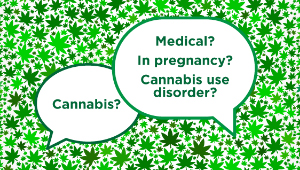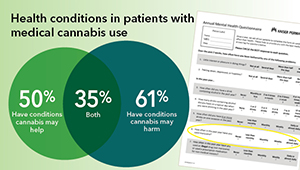Theresa Matson, PhD, MPH
Biography
Theresa (“Tessa”) Matson aims to make addiction health services more accessible, acceptable, and equitable to patients. She recognizes that strong partnerships with health system leaders, clinical staff, and patients are necessary to identify unhealthy substance use and improve the treatment of substance use disorders — and she is enthusiastic about engaging stakeholders in the design and implementation of these efforts. She joined Kaiser Permanente Washington Health Research Institute (KPWHRI) in 2016 as a student intern and has held several roles since then, formally joining the KPWHRI faculty as a collaborative scientist in 2022. Dr. Matson is also an affiliate assistant professor in the Department of Health Systems and Population Health (HSPop) at the University of Washington.
With advanced training in quantitative and qualitative methodology, Dr. Matson is developing methods to improve the measurement of treatment for alcohol, cannabis, and other substance use disorders from administrative data such as electronic health records and insurance claims. She is interested in ways that measurement may perpetuate biases that persist in the social world or produce new paths for discrimination under the guise of objectivity. She currently collaborates on trials designed to improve the provision of care for opioid and substance use disorders in primary care and mental health settings. These trials, funded by the National Institute on Drug Abuse, include studies that promote equity in access to digital interventions for unhealthy substance use.
Dr. Matson earned her MPH in health services and her PhD in health systems and population health from the University of Washington. Her dissertation leveraged routinely collected data from Kaiser Permanente Washington to describe gaps and potential biases in diagnosis and treatment of cannabis use disorder and validated practical tools to improve cannabis use disorder recognition in primary care. The University of Washington School of Public Health awarded Dr. Matson the Gilbert S. Omenn Award for academic excellence.
Prior to becoming a collaborative scientist, Dr. Matson was a pre-doctoral fellow at VA Puget Sound, where she studied system-level, organizational-level, and patient-level determinants to receipt of evidence-based treatment for alcohol use disorder. She also worked as a research interventionist at KPWHRI, where she designed patient-centered interventions, coached patients in behavioral health change using motivational interviewing, and engaged research participants in projects to improve clinical tools and workflow through user-centered design principles.
She is a lifelong learner and aspiring adventurist with a tendency of collecting hobbies in her spare time. Currently, you’ll find her at Home Depot, checking out power tools for her latest home improvement project.
RESEARCH INTERESTS AND EXPERIENCE
-
Addictions
-
Mental health
-
Health services & economics
-
Implementation science
-
Preventive medicine
-
Social determinants of health
Recent Publications
Williams EC, Matson TE, Harris AHS. Strategies to increase implementation of pharmacotherapy for alcohol use disorders: a structured review of care delivery and implementation interventions. Addict Sci Clin Pract. 2019 Feb 12;14(1):6. doi: 10.1186/s13722-019-0134-8. PubMed
Lapham G, Boudreau DM, Johnson EA, Bobb JF, Matthews AG, McCormack J, Liu D, Samet JH, Saxon AJ, Campbell CI, Glass JE, Rossom RC, Murphy MT, Binswanger IA, Yarborough BJH, Bradley KA. Prevalence and treatment of opioid use disorders among primary care patients in six health systems. Drug Alcohol Depend. 2020;207:107732. doi: 10.1016/j.drugalcdep.2019.107732. Epub 2019 Nov 15. PubMed
Williams EC, Bobb JF, Lee AK, Ludman EJ, Richards JE, Hawkins EJ, Merrill JO, Saxon AJ, Lapham GT, Matson TE, Caldeiro R, Greenberg DM, Kivlahan DR, Bradley KA. Effect of a care management intervention on 12-month drinking outcomes among patients with and without DSM-IV alcohol dependence at baseline. J Gen Intern Med. 2019 Aug 20. doi: 10.1007/s11606-019-05261-7. [Epub ahead of print]. PubMed
Matson TE, Anderson ML, Renz AD, Greenwood-Hickman MA, McClure JB, Rosenberg DE. Changes in self-reported health and psychosocial outcomes in older adults enrolled in sedentary behavior intervention study. Am J Health Promot. 2019 Apr 7:890117119841405. doi: 10.1177/0890117119841405. [Epub ahead of print]. PubMed
Williams EC, McGinnis KA, Tate JP, Matson TE, Rubinsky AD, Bobb JF, Lapham GT, Edelman EJ, Catz SL, Satre DD, Bryant KJ, Marshall BDL, Kraemer KL, Bensley KM, Richards JE, Skanderson M, Justice AC, Fiellin DA, Bradley KA. HIV disease severity is sensitive to temporal changes in alcohol use: a national study of VA patients with HIV. J Acquir Immune Defic Syndr. 2019 Apr 6. doi: 10.1097/QAI.0000000000002049. [Epub ahead of print]. PubMed
New findings

Better tools for assessing substance use disorder
A simple checklist developed at KPWHRI does well at measuring symptoms of substance use disorder.
Research roundup

What's new in cannabis use research?
Use in pregnancy and screening in primary care studied by KPWHRI’s Kiel, Matson, and Lapham.
Electronic health records

EHR study offers insights on medical cannabis use
New research examines providers’ notes to understand patients’ cannabis use and health conditions.
KPWHRI in the media
Substance use checklist effective in primary care
Substance use checklist demonstrates validity, feasibility in primary care
Healio, June 13, 2023



